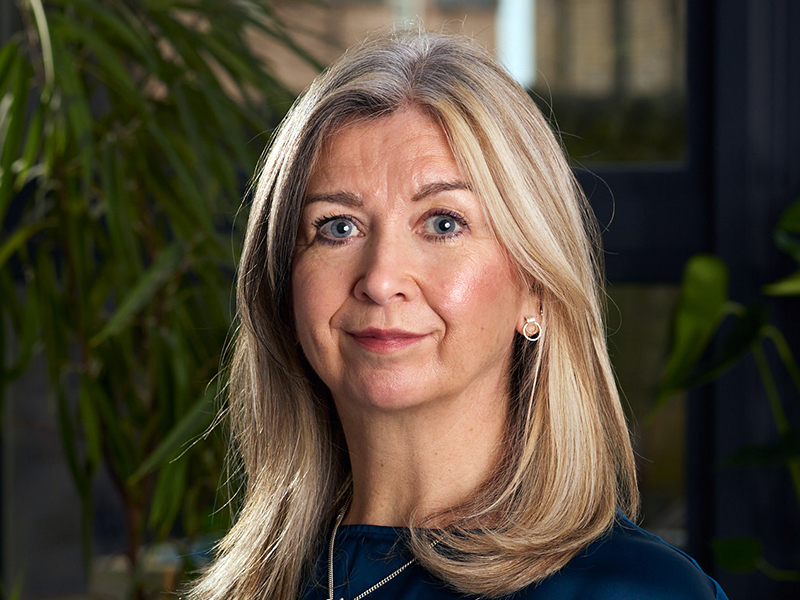Mary Glasgow on what was - and wasn't - in the recent Spending Review for children's services
Children do well when families do well.
When children grow up safe and loved in their own family they build and understand good relationships, are generally healthy, become resilient, fulfil their potential, contribute to strong communities and grow up ready to nurture the next generation of children. But across Scotland, Children 1st is hearing from more families who would never have believed they’d have to reach out to a charity for help.
Most families are now facing difficult decisions about whether they can afford to keep this or that food item on their shopping list, or to turn their heating on during a cold snap. Every family has faced unprecedented challenges in recent years. For families who were already managing complex issues, Covid and the cost of living crisis have created a perfect storm.
At Children 1st we’re already seeing the effect on children’s wellbeing. With family finances at breaking point and the public purse tighter than ever, the decisions about where to prioritise budgets will be make or break for this generation of Scotland’s children.
In theory, at least, Scotland has a strong policy framework for prioritising children and families. A three-legged policy stool of the Promise, child poverty action plans and the incorporation of the UN Convention on the Rights of the Child (UNCRC) should provide a sturdy seat from which families are actively supported to keep their children, safe, loved and well within their home.
Today, given everything that children and families have experienced in the last two years, the need for that family support is greater than ever. But, more than a decade after the Christie Commission called for public services to focus on prevention, families continue to tell us that before they connected with Children 1st the help they needed was hard to find or they faced too many barriers in accessing it. None of us want to go through the challenge of filling in a difficult to understand or impossibly long form and nor would we want to reach out to a service that makes us feel judged or stigmatised. For a family already close to breaking point, it is too much to expect.
Too often, that support isn’t just hard to reach for, it just doesn’t exist. As one Mum, recently told us: “It’s so hard to ask for help. Then you reach out and there is none.”
The recent Scottish Government spending review rightly prioritised tackling child poverty but alongside financial support, families also need easy access to the emotional and practical support that will keep their children safe and their family strong. The budget for education (which is where accountability for the delivery of services to support for children and families lie) appears flat, but with inflation forecast to be just shy of 9% by the end of 2022, this represents a real term cut. And, between now and 2027 the local government budget, which can make the biggest impact on whether families can easily access local support services, is forecast to decrease by 7%.
The Christie Commission recognised that when public financed are tightest, the need for investment in prevention is greatest. But, in real terms, the spending review marks a reduction in the budgets where investment most urgently needs to be made to keep Scotland’s Promise and to realise the rights set out in the UNCRC.
In 2020 the Promise calculated that the total cost to the public sector of taking children into care was over two billion pounds, taking into account the cost of services linked to the formal care system like mental health provision and costs of fixing the system’s mistakes and failings, as well as the costs of the formal care system.
Just imagine, what could that two billion pounds do for children, their families and their future when invested in early help and wellbeing support for families. Families like Scott’s, who feature in our new spring appeal. Scott and his family were moved to emergency housing overnight, leaving behind their community, friends and belonging. When they met our family support worker, the whole family was struggling and Scott told us: “I feel dark inside”. Being able to access quick support, meant that both Scott’s parents and Scott were able to cope and move on from the crisis they’d faced. The family’s new house feels like a home, Scott feels safe again, things are improving for him at school and he feels better inside.
In the tough budgetary decisions that lie ahead the Scottish Government, local authorities and other service providers need to take actions that fit with and honour those policies that claim Scotland is the best place to grow up.
By acting now to transition resources away from out-of-family placements and investing instead in the early family support that families need and want, delivered in partnership with the third sector, the Scottish Government and local authorities can realise their ambitions for children and their families.
In these tough times, the decision to invest in family support isn’t a tough choice, it’s an essential one.
Mary Glasgow is Chief Executive of Children 1st.







